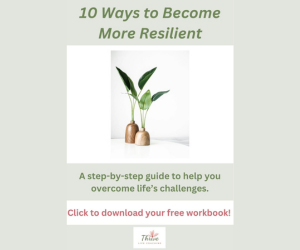I don’t know of any other profession that makes it harder to achieve optimal work-life balance than being a teacher. And if you’re a parent as well, that makes it even more difficult.
On top of their role in the classroom, teachers are tasked with many extra duties as well, and it’s hard to say no when asked to sponsor a club, coach an athletic team, etc. And with so much to do and so little time to do it in, teachers end up taking work home in the evening and on weekends, and often don’t take time off when they’re sick – and even less so just to take a personal day for their own enjoyment and refreshment. Pretty soon, work has taken over their life and the imbalance can lead to exhaustion and burnout.
But even when teachers do allow themselves a break, it often comes with feelings of guilt.
How many of these thoughts sound familiar to you?
-I should be using this free time to do such-and-such a task.
-I could use this time to get ahead on my next unit plan.
-I feel selfish for relaxing and pursuing my own personal interests when my colleagues are involved in extra activities at the school.
-My own kids don’t see me enough, so when I’m home I feel guilty if I do something for myself and don’t spend all of my time with them.
And do these thoughts help you relax and recharge?
Of course not.
So how does anyone achieve optimal work-life balance as a teacher? And is it even possible?
The answer is yes.
Here are some guidelines to help you achieve optimal work-life balance, starting today.
- Set realistic expectations – Teachers are NOT superheroes. They’re regular people too. But somehow we as teachers take on the idea, whether consciously or subconsciously, that we need to be the superhero and this sets us up for failure every time. Our bodies need rest, good nutrition, and healthy movement. Our minds need a break from thoughts of school. Our souls yearn for connection with family and friends, but if we are setting unrealistic expectations for ourselves we’ll never feel successful or at peace. So take some time to give yourself grace, set realistic expectations that an actual human being can reasonably achieve, and move forward in a healthier way.
- Delegate – This one can be really hard for many of us. It’s hard to give up control of something, both in our classrooms and at home, but allowing others to step in and take on some tasks will free up some time and alleviate the mental load that you carry each day. Make a list of the tasks that can reasonably be done by someone else, both in the classroom and at home, and start allowing others to pitch in. And remember, delegating is not shirking your responsibility – it’s about inviting others in and creating space for yourself.
Make time for personal interests/recreation – Once you’ve set realistic expectations for yourself and delegated the tasks that you can, you should have freed up some time in your schedule. Instead of filling this time up with things you could be doing at work, protect it as sacred time in which to pursue your personal interests. Maybe it’s engaging in a favorite hobby, starting a new one, joining an activity group, or simply unplugging and relaxing with a good book each evening. Whatever it is, protect this time as you would any other important appointment or task – because it IS important.
And if you’re feeling guilty about any of this, just remember: The best thing you can do for others is take care of yourself, so in reality you’re making yourself more effective in how you serve both your students and your loved ones.









